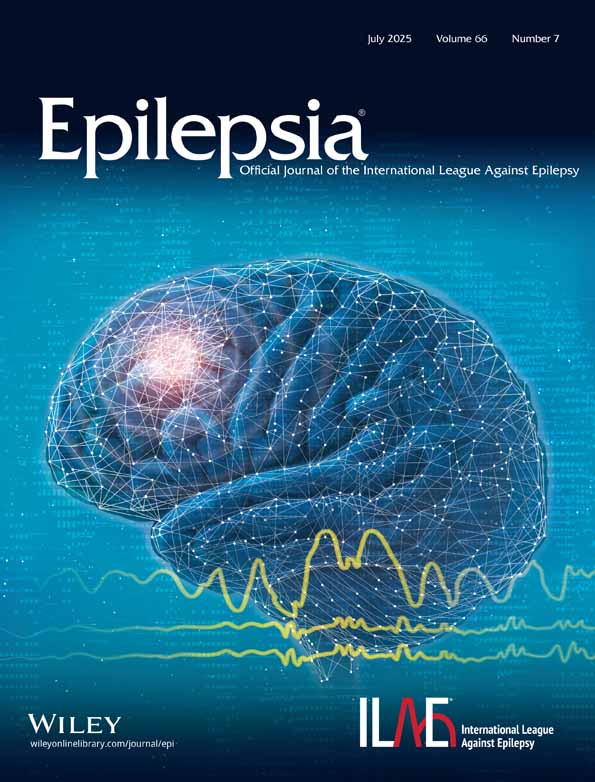Further Validation of the WPSI Vocational Scale: Comparisons with Other Correlates of Employment in Epilepsy
Abstract
Summary: The present study evaluates the relationships between employment status and five types of variables: years of education, intelligence, emotional adjustment, neuropsychological impairment, and psychosocial adjustment. The latter two areas were evaluated by procedures specifically developed for work with seizure patients and include use of the Neuropsychological Battery for Epilepsy and the Washington Psychosocial Seizure Inventory. Fifty-eight patients were divided into groups based on their employment histories and classified as unemployed, underemployed, and employed. Results indicated that the two types of procedures developed specifically for work with clients having seizures demonstrated the most potent and consistent relationships with employment status. The study suggests that the use of these procedures in the evaluation of employability may be more effective than using only those variables which traditionally have been applied.
RESUMEN
Este estudio evalúa las relaciones que existen entre situación laboral y cinco tipos de variables: años de educación, inteligencia, ajuste emocional, danYo neuropsicológico y ajuste psicosocial. Las últimas dos variables fueron estudiadas por medios específkamente diseñados en el trabajo con pacientes epilépticos e incluyeron el uso de la llamada “Batería de Pruebas Neuropsicológicas para Epilepsía” y el “Inventario Psicosocial para Epilépticos de Washington”. Se dividieron 58 pacientes en apartados basados en la historia laboral clasificándolos en 3 grupos: noempleados, infra-empleados y empleados. Los resultados indicaron que, la utilización de esas dos pruebas en pacientes con crisis comiciales fueron más fidedignas estableciendo el nivel de empleo. EI estudio sugiere que el uso de estos procedimientos puede ser másefectivo, al evaluar la situación laboral, que utilizar solamente aquellos parámetros que habían sido empleados de manera tradicional.
ZUSAMMENFASSUNG
Die vorliegende Studie untersucht die Beziehungen zwischen Beschäftigungsstatus und 5 Typen von Variablen: Die Jahre der Ausbildung, die Intelligenz, die emotionale Anpassung, neuropsychologische Be-einträchtigung und die psychosoziale Anpassung. Die letzten beiden Bereiche wurden durch Methoden bewertet, die speziell für Anfallskranke entwickelt wurden und beinhalten die Verwendung der neuropsychologischen Batterie für Epilepsie und das Washington psychosziale Anfallsinventar. 58 Patienten wurden in Gruppen entsprechend ihrer Beschäftigung unterteilt und als nicht beschäftigt, unterbeschäftigt und beschäftigt klassifiziert. Die Ergebnisse weisen darauf hin, daß die beiden Beurteilungs-methoden, die speziell für die Arbeit mit Anfallskranken entwickelt wurden, die stärksten und bestandigsten Beziehungen zum Beschäftigungsstatus demonstrieren. Die Untersuchung läßt vermuten, daß die Verwendung dieser Methoden für die Bewertung der Beschäftigungs-fähigkeit wirkungsvoller sein kann, als nur die bisher traditionellerweise verfügbaren anzuwenden.
RÉSUMÉ
Cette étude évalue les relations existant entre les conditions d'emploi et cinq types de variables: le nombre d'année d'éducation, L'intelligence, les possibilites d'adaptation émotionnelle, la détérioration neuropsychologique et L'adaptation psycho-sociale. Les deux dernières données ont étéévaluées selon des precédés dévéloppes spécialement pour L'étude de sujets épileptiques et comportant L'utilisation de la Neuropsychological Battery for Epilepsy et du Washington Psychosocial Seizure Inventory. Cinquante huit malades ont été divisés en groupes détérminés selon leur histoire professionnelle et classés en Sans-emploi, Sous-employés et Employes. Les résultats obtenus ont montré que les deux types de procédés mis au point pour L'étude spécifique des épileptiques sont ceux ayant les relations les meilleures et les plus adaptées aux conditions effectives d'emploi. Cette étude permet de penser que, dans L'évaluation des possibilités d'emploi, ces méthodes seraient plus efficaces que celles utilisées traditionnellement.




